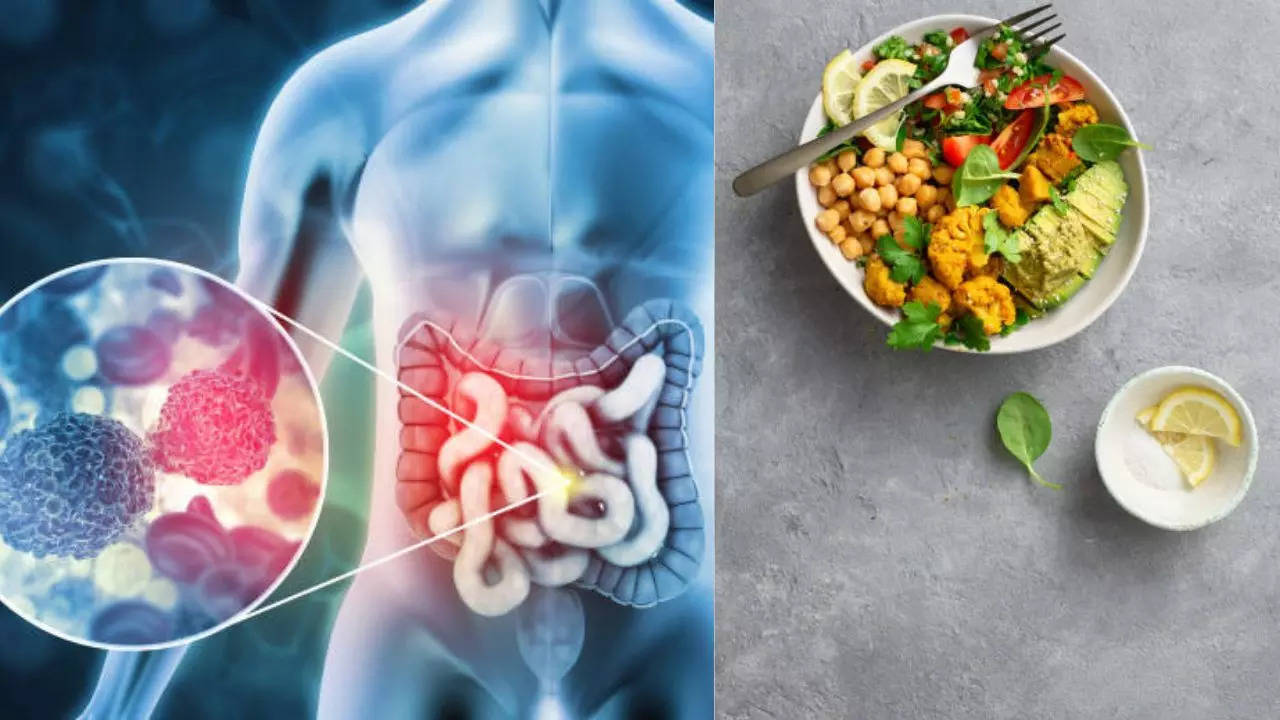
Experts recommend including fruits and vegetables in your diet and reducing red meat, processed foods, and high-fat and high-calorie foods.
There has been a significant increase in the number of young people diagnosed with colon or colorectal cancer around the world. According to studies and experts, most of the youth including Gen Z are susceptible to cancer which develops in the tissues of the colon or rectum and is the second leading cause of cancer deaths.
Experts say that obesity and alcohol consumption are the main reasons why this cancer has become the main cause of increasing death among young adults.
What is Colorectal Cancer,
According to experts, colorectal cancer begins in your colon or large intestine – the long tube that helps move digested food to your rectum and out of your body. It develops from certain polyps or growths in the inner lining of your colon. Doctors say that it takes about ten years for a colon polyp to develop into cancer. If it is not detected or treated, cancer works its way through the tissue, muscle, and outer layer of your colon. Colon cancer also spreads to other parts of your body through your lymph nodes or blood vessels.
There are several screening tests that detect precancerous polyps before they become cancerous tumors. Doctors say that colon cancer that is not detected or treated can spread to other areas of your body.
Ways to prevent stomach cancer through diet
According to doctors, although you may not be able to prevent colon cancer completely, you can reduce your risk of developing this condition by managing risk factors, which includes practicing a healthy diet. Smart food choices can significantly reduce the risk — including a diet that’s rich in fiber-rich foods like whole fruits, vegetables and whole grains.
Eating a plant-based diet rich in lots of fiber and other nutrients may help reduce the risk.
Experts also recommend including fruits and vegetables in your diet and reducing red meat, processed foods, and high-fat and high-calorie foods. Drinking coffee may reduce the risk of colon cancer.
To increase your dietary fiber intake, you must eat:
- whole wheat bread or brown rice
- Beans and legumes such as soybeans, lentils, peas, pinto beans, kidney beans
- Broccoli
- Onion
- Eggplant
- Carrot
- Garlic
- Jamun
- watermelon
- Apple
- Pear
- oranges
- bananas
According to doctors, you should also include protein-rich foods like fish and poultry and choose low-fat dairy products when possible. Eating turkey, nuts, nut butters and low-fat dairy products is also highly recommended.
Another way to reduce the risk of colorectal cancer is to drink plenty of water and stay hydrated as this ensures that you are getting enough fluids daily. However, the majority should come from non-caffeinated beverages.
Other nutrients include foods that are rich in vitamin C, vitamin E and selenium such as oranges, fish, grains, poultry, almonds, mangoes, safflower oil, rice, wheat and Brazil nuts are good sources of these nutrients .
According to studies, eating mushrooms regularly can reduce the risk of colon cancer.
What is Survival Rates for Colorectal Cancer,
Statistics say that overall, 65 percent of people with colorectal cancer were still alive five years after diagnosis. Colorectal cancer survival rates vary depending on the stage of the cancer at the time of diagnosis. For example, 73 percent of people with colorectal cancer that has spread to nearby tissues, organs or lymph nodes were still alive five years after diagnosis.
Survival rates are an estimate based on outcomes – how long people lived after being treated for a specific type of cancer. In this case, survival rates are based on the experiences of larger groups of people with colorectal cancer, not just colon cancer. In addition, many things affect colon cancer survival rates. If
Get the latest news live on Times Now with breaking news and top headlines from around the world on diet, health and more.



